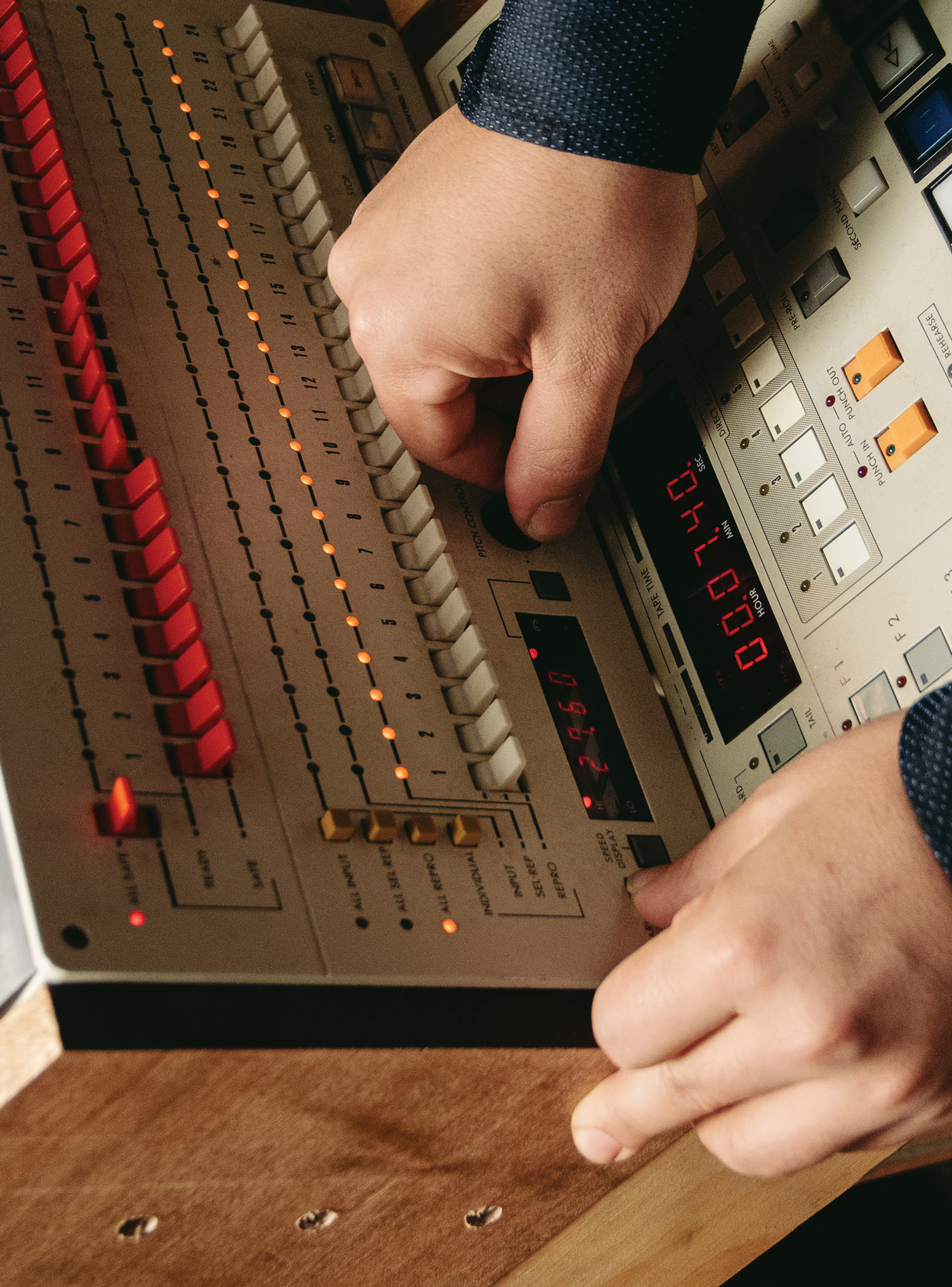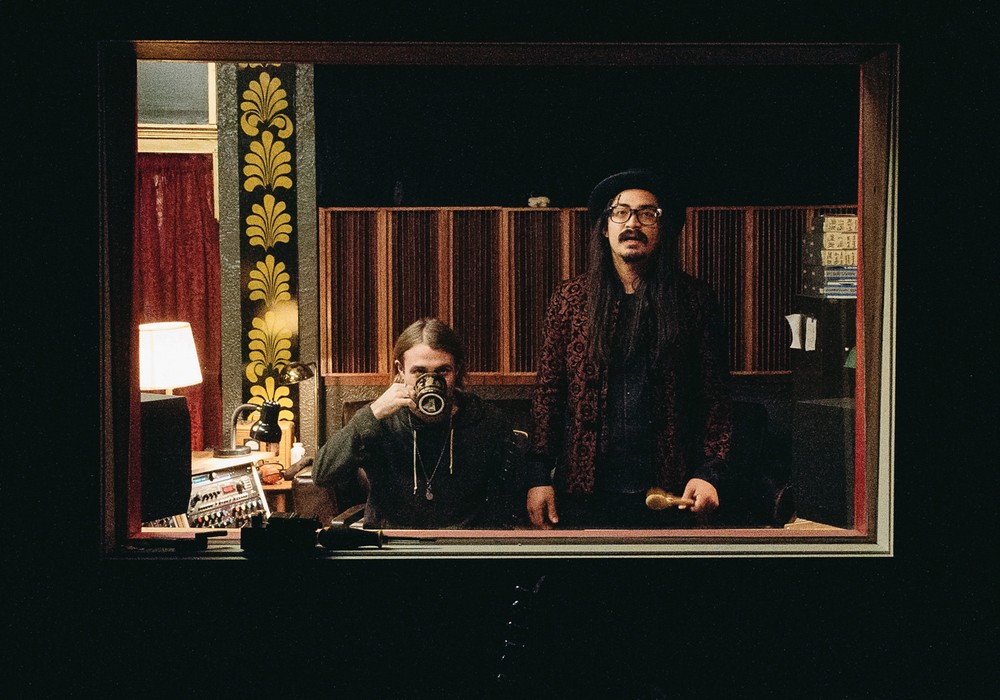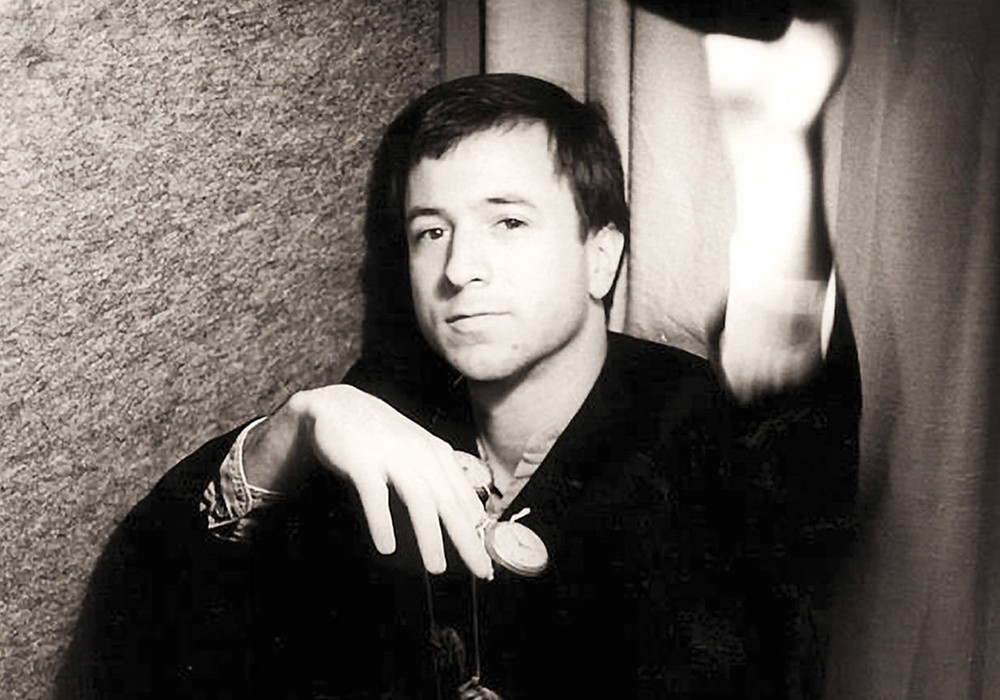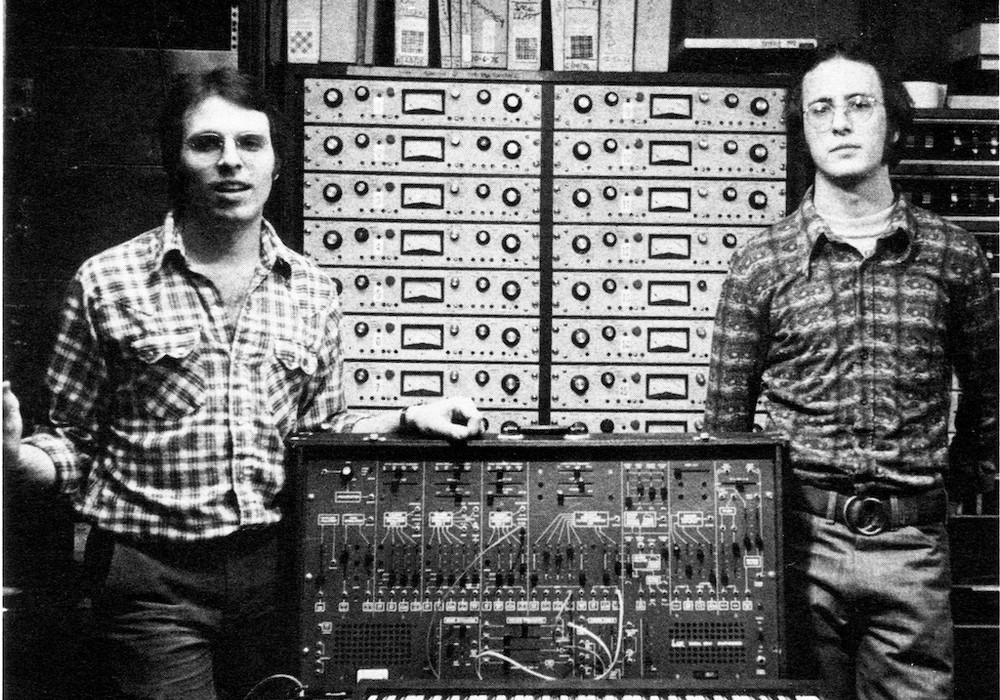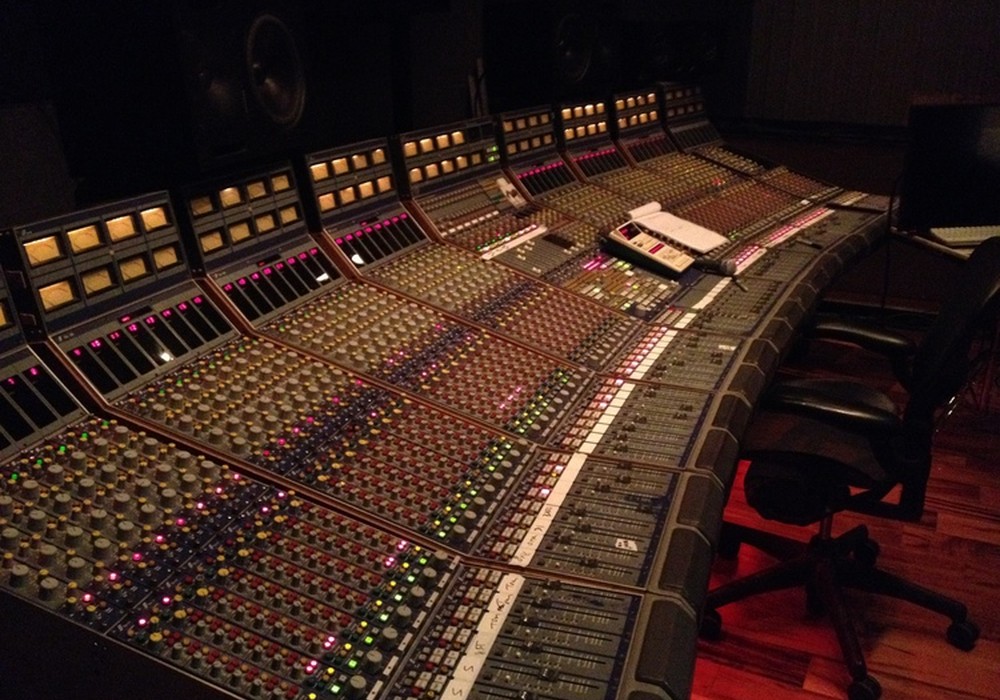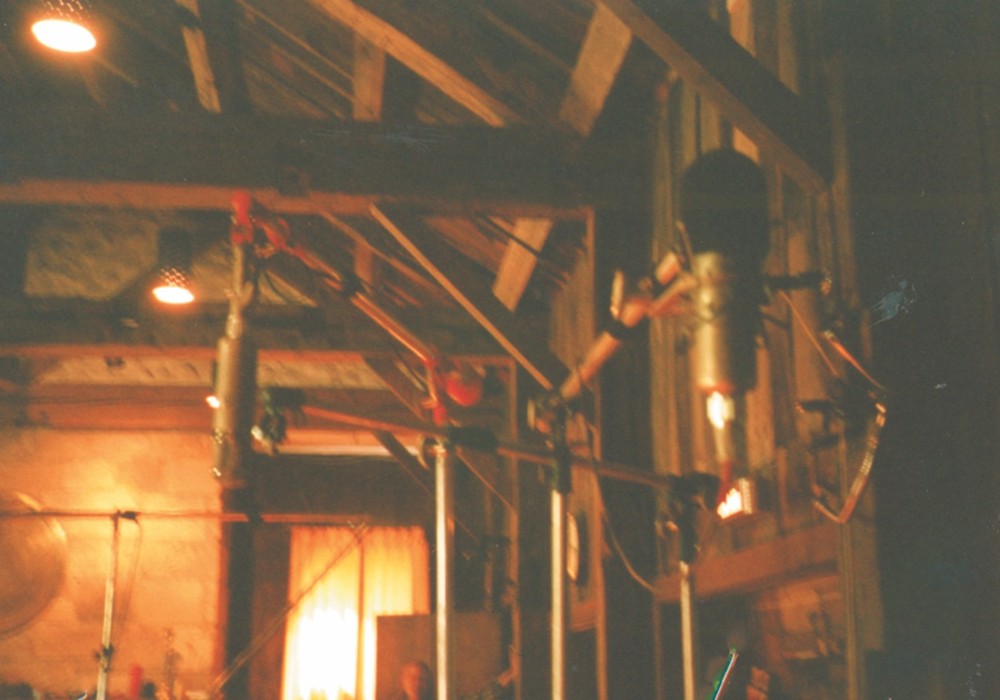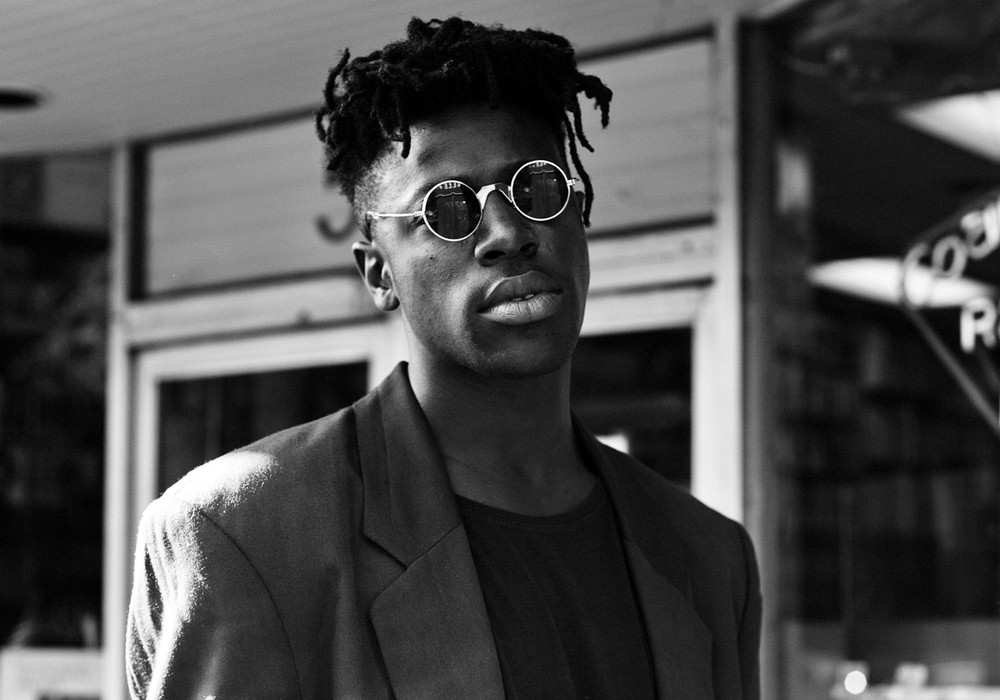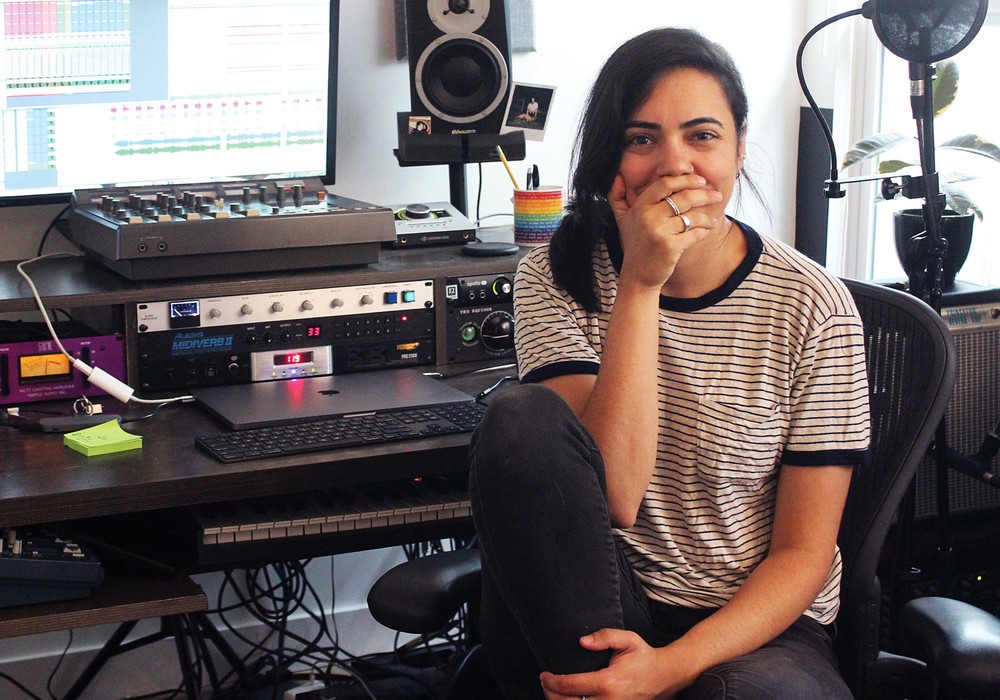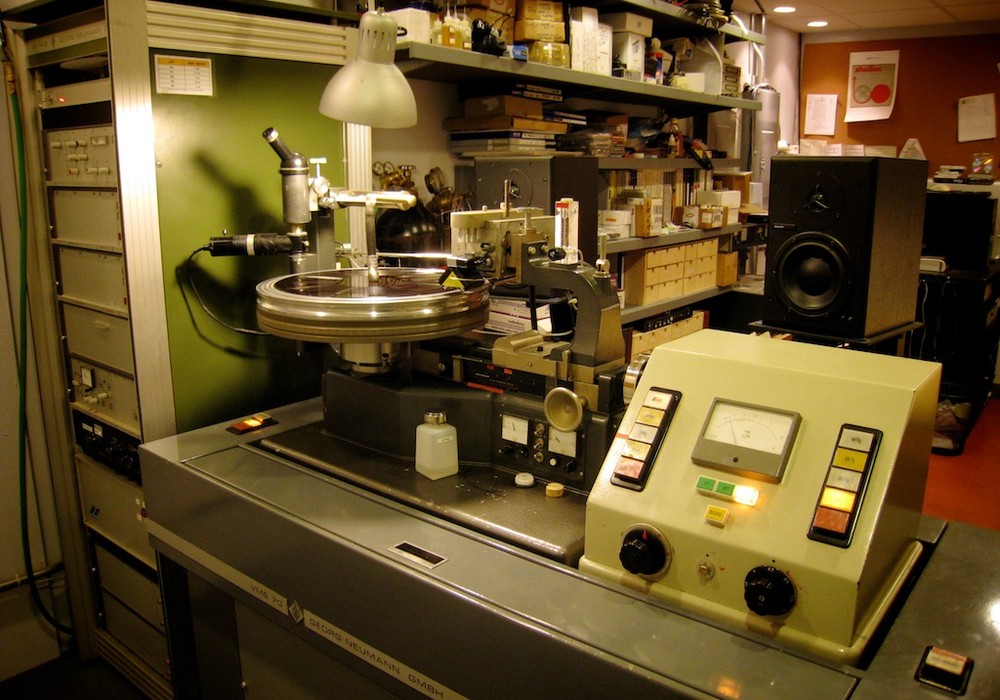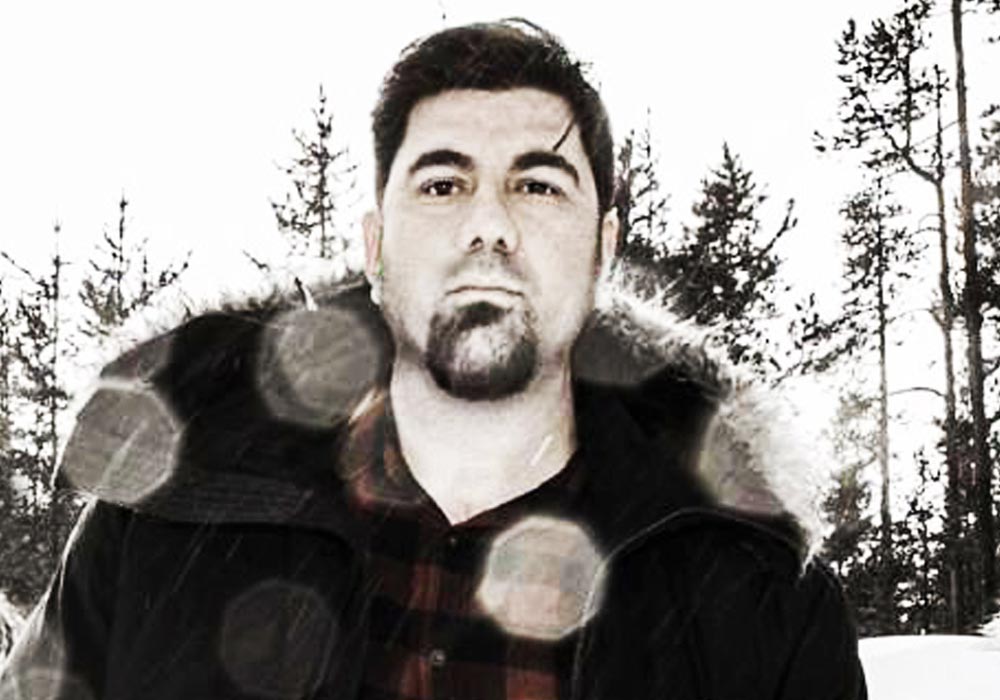I've been a fan of The Low Anthem since hearing their 2007 album, What the Crow Brings. Each subsequent release has found Ben Knox Miller, Jeffrey Prystowsky, and the rest of the band evolving and expanding their sound, and pushing boundaries with impeccable musicality and production. In 2012, in search of a place to rehearse and make their new record, they found the Columbus Theatre, a beautiful old opera house built in 1926, in their hometown of Providence, Rhode Island. I spent some time with the fellas, and got a preview of their new record, Eyeland. Cuts like "Air Hockey Fire" and "The Pepsi Moon" left indelible impressions. I feel that they've clearly reached a new level with this record that includes sharp production and recording skills, as well as an approach uniquely their own. Bob Ludwig [Tape Op #105], who mastered Eye land, wrote, "It's a truly wonderful album, a real piece of art, and something that doesn't come by too often." Last fall, after finishing the new record, they opened Eyeland Studio at the Columbus Theatre, along with partner and systems designer Brian Webb. The studio is located on the second floor of the theatre and it is unlike anything I've ever seen, utilizing the theatere itself for tracking, which makes for endless sonic possibilities. The first official recording session at Eyeland Studio took place last August with Jeff's personal hero, renowned drummer Brian Blade and the Fellowship Band, followed shortly thereafter by Cat Power, and Xylouris White (with Jim White of Dirty Three). The main hall also serves as one of the finest live music venues in the Northeast. Miller and Prystowsky, along with Tom Weyman and Bryan Minto, formed the Columbus Cooperative, which has been presenting concerts for three years in the theatre, by such artists as Daniel Lanois [Tape Op #37], Iron & Wine, Of Montreal, Charles Bradley, Bonnie Prince Billy [Tape Op #40], The Mountain Goats and Amanda Palmer, who said in a tweet, "Arrived and rehearsed at the stunningly beautiful and bizarrely DIY Columbus Theatre... this place used to be a porn palace and is now run by a bunch of young freaks with vision." Daniel Lanois, upon seeing Eyeland Studio (then a work in progress, a year before it was finished), wished The Low Anthem this blessing, "You renegade mother Y#,>Y, with the hearts of lions, lit by rising stars. May your spirit live on!"
Tell me a bit about the room across from what’s now the master control room. Was this the beginnings of what ultimately became Eyeland Studio?
Ben Knox Miller: It’s currently a “dry” room, as well as a drum school on Saturday mornings, run by Rachel Blumberg. But that was mission control when we first moved in here. It felt a bit like outer space, in the darkness, black curtains, with the gear lights illuminated. You feel like you’re mixing in a vacuum. We moved in there for the control, at first, because we wanted to hear exactly what was in the speakers and not be fooling ourselves. We needed to know what the opera house actually sounded like on playback. But soon it got claustrophobic. You could mix a three-piece and be totally cool and comfortable, but any more than that and it was too crowded.
So when you first moved into that small room, you knew you’d be using the rest of the space, eventually?
BKM: We had no plan at all, other than to make our new record. We had 400 feet of snake, a few mics, and a bunch of songs. But the record outgrew that room and we began to see the long-term potential of the space, so we ripped out the kitchen sink, smashed out a window, and built QRD [Quadratic-Residue] diffusors. The kitchen was bigger.
How are you integrating the Columbus Theatre into the studio? It’s an incredible space, with so many variations available.
BKM: We built a patchbay that makes it easy to record any sound in any of the acoustical settings in the theatre. The concrete dressing rooms under the mainstage and the large theatre lend themselves as unique natural echo chambers for the studio.
Jeffrey Prystowsky: There’s a silent movie organ, too. An original Wurlitzer from 1926. The mechanical instruments and pipes are high above the theatre seats, behind the mural.
How did The Low Anthem journey lead you to this place?
BKM: Well, we’d been on tour for about five years, and in the meantime had various warehouse studios where we’d always do our own recording. We’d come home for a few months to work on the record, then move shop again. It seemed that we were moving shop every season, and after five years of not living in one place, or having a permanent setup, we came home and really wanted to decompress for awhile. We had demos for the new album. We packed up our last studio, a decrepit swamp of a mill building where some guy used to breed rare reptiles in North Providence. We were looking for a place where we could keep all of our equipment, because much of it was in my parents’ attic. We wanted to find a space that would allow us to become self- sustainable, as well as keep producing work.
JP: We were at the end of the Smart Flesh tour, and we were so used to riding into town in the tour bus, looking for the venue, for the pizza place, and whatever forms of alternative media there were available. It was nice to break that routine and decompress back home. I first saw the theatre, and there was an ominous marquee that said “Opening Soon,” which hung there for so long that no one really believed it would ever actually open. I suppose it was “soon” in the cosmic sense. [laughs] Anyway, I was having pizza across the street and I thought, “This is a music venue.” In Providence, at the time, there was really nothing like it, so I started to research, making some calls. We had no plan, and no real intent to move in. Through a mutual friend, Ben and I got a tour of the theater, which had been closed since 2009. Once we saw it, we knew we had to make our next record here. We’d just come from a pasta sauce factory and the gator pit, so we got the gear out of Ben’s parents attic, swept the floors, and started recording!
Was the owner immediately receptive to what you guys wanted to do?
BKM: We knew right away that someone had...
